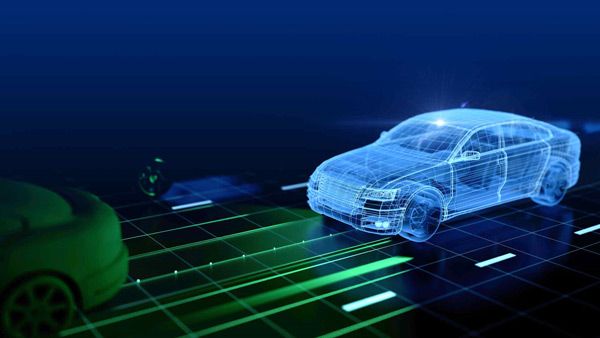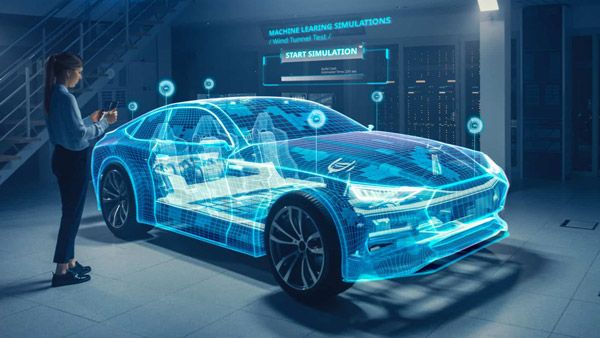Who’s At Fault? The Complex Liability Of Autonomous Vehicles
-Vedant Jouhari
Updated: Tuesday, April 16, 2024, 12:39 [IST]
In
an
era
where
technology
and
transportation
intersect,
autonomous
cars
are
becoming
more
than
just
a
concept.
They
represent
the
future
of
driving.
However,
this
innovation
brings
with
it
a
new
challenge:
determining
liability
in
the
event
of
an
accident.
As
these
vehicles
navigate
our
roads,
the
question
of
who
is
at
fault
during
a
mishap
is
complex
and
multifaceted.
In
the
case
of
accidents
involving
autonomous
vehicles,
the
responsibility
might
shift
from
the
driver
to
other
parties
such
as
the
manufacturers,
software
developers,
or
even
the
regulatory
bodies
overseeing
the
technology.
Determining
liability
in
these
situations
becomes
complex
as
it
is
not
always
clear
who
or
what
exactly
caused
the
accident.
This
uncertainty
raises
important
legal
and
ethical
considerations
that
need
to
be
addressed
as
autonomous
vehicles
become
more
prevalent
on
the
roads.

As
technology
continues
to
advance
and
autonomous
vehicles
become
more
integrated
into
our
transportation
systems,
it
is
crucial
to
establish
clear
guidelines
and
regulations
for
determining
liability
in
accidents
involving
these
vehicles.
The
evolving
nature
of
autonomous
driving
technology
requires
a
reevaluation
of
traditional
legal
frameworks
to
ensure
that
accountability
and
responsibility
are
appropriately
assigned
in
the
event
of
accidents.
Despite
the
potential
for
error,
autonomous
vehicles
have
the
capability
to
greatly
enhance
road
safety
by
reducing
accidents
caused
by
human
factors
like
distraction,
fatigue,
or
impairment.
Companies
investing
in
this
technology
believe
that
with
continued
advancements
and
rigorous
testing,
the
benefits
will
outweigh
the
risks
in
the
long
run.
As
the
industry
works
towards
perfecting
autonomous
driving
systems,
the
legal
and
ethical
implications
of
accidents
involving
these
vehicles
remain
uncertain.
Determining
liability
in
such
cases
can
be
complex,
as
it
may
involve
intricate
evaluations
of
the
technology,
human
interaction,
and
regulatory
compliance.
The
evolving
landscape
of
autonomous
vehicles
will
require
ongoing
dialogue
and
collaboration
among
stakeholders
to
address
these
challenges
and
ensure
the
safe
integration
of
this
innovative
technology.
Legal
experts
believe
that
a
new
framework
for
liability
is
crucial
to
address
the
complexities
of
autonomous
vehicle
accidents.
This
framework
could
potentially
involve
a
combination
of
product
liability
laws,
which
hold
manufacturers
accountable
for
defective
products,
and
traditional
negligence
claims,
which
focus
on
individual
actions
or
decisions.

The
specific
application
of
these
legal
principles
would
likely
vary
depending
on
the
circumstances
of
each
accident,
considering
factors
such
as
the
level
of
autonomy
in
the
vehicle
at
the
time
of
the
incident
and
the
actions
(or
inactions)
of
both
the
driver
and
the
technology
itself.
By
developing
a
more
nuanced
approach
to
liability
in
autonomous
vehicle
accidents,
the
legal
system
can
better
adapt
to
the
evolving
technology
and
provide
more
clarity
for
all
parties
involved.
This
could
help
ensure
that
victims
receive
appropriate
compensation,
while
also
promoting
accountability
among
manufacturers
and
drivers
in
the
rapidly
advancing
field
of
autonomous
vehicles.
Additionally,
as
autonomous
vehicles
become
more
prevalent
on
the
roads,
insurance
companies
are
exploring
new
approaches
to
coverage
and
risk
assessment.
They
are
looking
at
factors
such
as
data
collection
from
sensors
and
advanced
driver-assistance
systems
to
determine
liability
in
the
event
of
accidents.
DriveSpark
Thinks
This
shift
towards
autonomous
driving
technology
is
prompting
insurers
to
rethink
traditional
insurance
models
and
adapt
their
offerings
to
meet
the
evolving
needs
of
drivers
in
a
more
automated
driving
environment.
The
evolution
of
autonomous
vehicles
is
a
testament
to
human
innovation.
However,
it
also
presents
new
legal
and
ethical
challenges
that
society
must
address.
As
these
vehicles
become
more
common,
the
legal
system
and
regulatory
frameworks
will
need
to
adapt
to
ensure
fairness
and
accountability
on
the
roads.
Determining
liability
may
involve
the
vehicle
manufacturer,
software
developer,
human
driver
(if
applicable),
or
even
third
parties
like
municipalities
responsible
for
road
maintenance.
This
complexity
highlights
the
importance
of
establishing
clear
regulations
and
guidelines
to
address
the
evolving
landscape
of
autonomous
vehicles
and
ensure
accountability
and
fairness
in
the
event
of
accidents.
Updating
legal
and
insurance
frameworks
to
adapt
to
the
nuances
of
autonomous
driving
is
crucial
for
promoting
safety,
innovation,
and
trust
in
this
rapidly
advancing
technology.
Get The Best Drivespark Stories!
Allow Notifications
You have already subscribed

